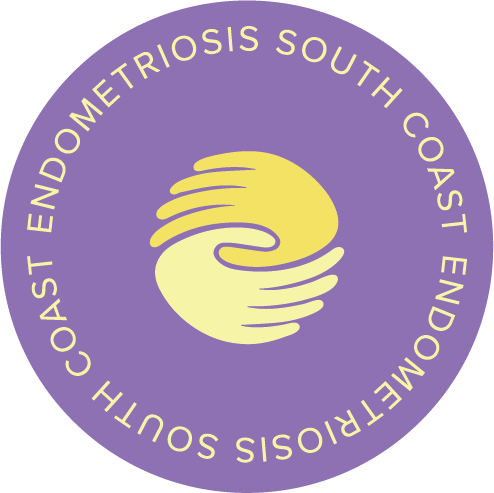October 17, 2022
Battling Medical Gaslighting and Endometriosis Stigma
Endometriosis is a debilitating disease that affects millions of women worldwide. It often goes undiagnosed for years, as many people are unaware of the symptoms or do not understand the condition.
This chronic condition can cause pain, infertility, and other health problems. One of the main reasons why it can be so difficult to treat or diagnose is because endometriosis stigma is, unfortunately, all too common in our lives.
Many people view it as a “woman’s problem” and don’t take people’s complaints and concerns seriously. This attitude only makes things worse for people who are struggling with the disease – endowarriors.
In this article, we will discuss the term ‘medical gaslighting’ and its effects on women’s health (both mentally and physically) as well as how we may be able to begin battling the negativity and disbelief surrounding this awful condition.
What Is Medical Gaslighting?
This is defined as “a form of emotional abuse in which someone repeatedly denies or dismisses your symptoms or concerns about your health.”
This type of behaviour is often seen in those who are close to us – such as family members, friends, or romantic partners. However, it can also come from medical professionals like GPs and consultants.
Research published in the Australia Medical Journal suggests that mistakes in diagnosis are made in up to one in seven consultations. But among that – females and people of colour are the most likely to experience dismissal by a professional.
Unfortunately, this is all too common for people who are dealing with endometriosis and other chronic illnesses. Far too often, individuals are told that their pain is not real, that they are overreacting, or just being dramatic.
This is not only incredibly hurtful, but it can also be dangerous. When people are not taken seriously, their condition can go undiagnosed or undertreated for far too long. This can lead to serious health complications down the road.
Medical gaslighting often has a significant impact on mental health as well. Studies have shown that this type of behaviour can cause anxiety, depression, and post-traumatic stress disorder (PTSD).
It’s important to remember that you know your body better than anyone else does. If you feel like something is wrong, trust your instincts and speak up. It’s time that we start breaking the silence around these topics once and for all.
What Is The Gender Health Gap?
Here we are referring to the difference in the health outcomes between males and females.
This term is often used to discuss the ways in which women’s health is neglected or not taken as seriously as men’s.
Endometriosis is one of the most common examples of this. As we mentioned before, it often takes years for women to be diagnosed (if they are diagnosed at all).
It was also noted that women wait for an average of 15 minutes more in A&E before receiving pain relief.
In terms of endometriosis stigma, there is also scope to speculate that male medical professionals have a less personal understanding of what women are going through with conditions like this and so may not know how to approach these issues.
Similarly, a study published in the British Medical Journal found that, when it comes to pain, men and women experience it differently. Women are more likely to have chronic pain, while men are more likely to have acute pain.
This difference is thought to be down to hormones – with oestrogen being a key player in endometriosis. But this isn’t taken into consideration as often as it should be, which leads to a lack of understanding from medical professionals.
It is important that we close the gender health gap so that everyone can receive the care and treatment they deserve – regardless of how they identify. We need to start speaking up and demanding better for ourselves and future generations.
Endometriosis Stigma
The fact we see so much of this is likely due to a number of factors – such as the lack of education and understanding about the condition.
The condition affects around 176 million women globally and yet it often goes undiagnosed for years (or even decades). This is, in part, because many people do not understand what the condition is or what its symptoms may be.
As a result, symptoms can be put down to other issues such as IBS, anxiety and hormonal changes meaning proper treatment isn’t given.

This lack of knowledge has led to a lot of misunderstandings and myths circulating. For example, some people believe that it’s just “bad period pain” or that it only affects those who are trying to get pregnant.
This couldn’t be further from the truth. It’s a chronic condition that can cause a great deal of pain and discomfort, as well as other health problems such as infertility (which affects around 40% of sufferers).
It is time that we start talking about this condition openly and without shame. Only then can we hope to tackle the endometriosis stigma and misconceptions that surround it.
Effects of Medical Gaslighting
As we’ve discussed, medical gaslighting can have a serious impact on both our physical and mental health.
Some of the physical effects include:
– Chronic pain
– Fatigue
– Gastrointestinal problems
– Pelvic pain
– Endometriosis lesions
And some of the mental effects include:
– Anxiety
– Depression
– PTSD
– Suicidal thoughts
How to Fight This
Despite all of this, there is still hope. We can fight back against negativity and disbelief by speaking up and raising awareness.
Here are some things you can do if you feel like your concerns and symptoms are being overlooked:
– Keep a record of your symptoms and when they occur – This will help you to track patterns or triggers and will give you something to refer back to if needed.
– Write down any questions you have before your appointments – This will help you to make the most of your time and ensure that all of your concerns are addressed.
– Find a doctor or specialist that you feel comfortable with. It’s important that you find someone who is willing to listen to you and take your concerns seriously, even if this means opting for private care over the NHS.
– Seek support from friends, family, or online communities. Talking about what you’re going through can be incredibly helpful. You may also find it reassuring to know that you’re not alone in this.
– Bring someone with you to appointments that can back up how you are feeling and possibly help you explain your worries in a different way.
This is a complex condition that deserves more attention than it currently receives. By breaking the silence and speaking up, we can help to break down the endometriosis stigma and get the support and treatment that people need.
How Our Organisation Is Tackling This Issue
Unfortunately, having what is considered a gendered illness, means a lack of research and money in endo treatment. Our gender is part of the struggle in accessing solutions and answers to our worries and pain.
However, we understand that not everyone with endo identifies as a woman, these people are often completely neglected in being recognised within any awareness content or medical research.
As a team, we are committed to representing underrepresented groups, including people of colour, transgender people and intersex people. It’s an awful condition to suffer from and no one should have to go through it alone without any answers.
Furthermore, not enough young people are aware of the difference between normal and abnormal menstrual health. Too often they are told that pain is part and parcel of having a period – but that’s not true.
We need to do better in raising awareness and educating people about endometriosis and other gynaecological conditions. Only then can we hope to break down the stigma and get the support and treatment that people need.
This is why one of our main aims is to not only educate those with the condition but all young people who may benefit from understanding more and seeking early diagnosis for any concerns.
If you’d like to know more or you have questions about what you have ready today – please do get in touch. If you’d rather do a bit more research, we have plenty of resources on our website and you can follow our journey on social media to find out more!

